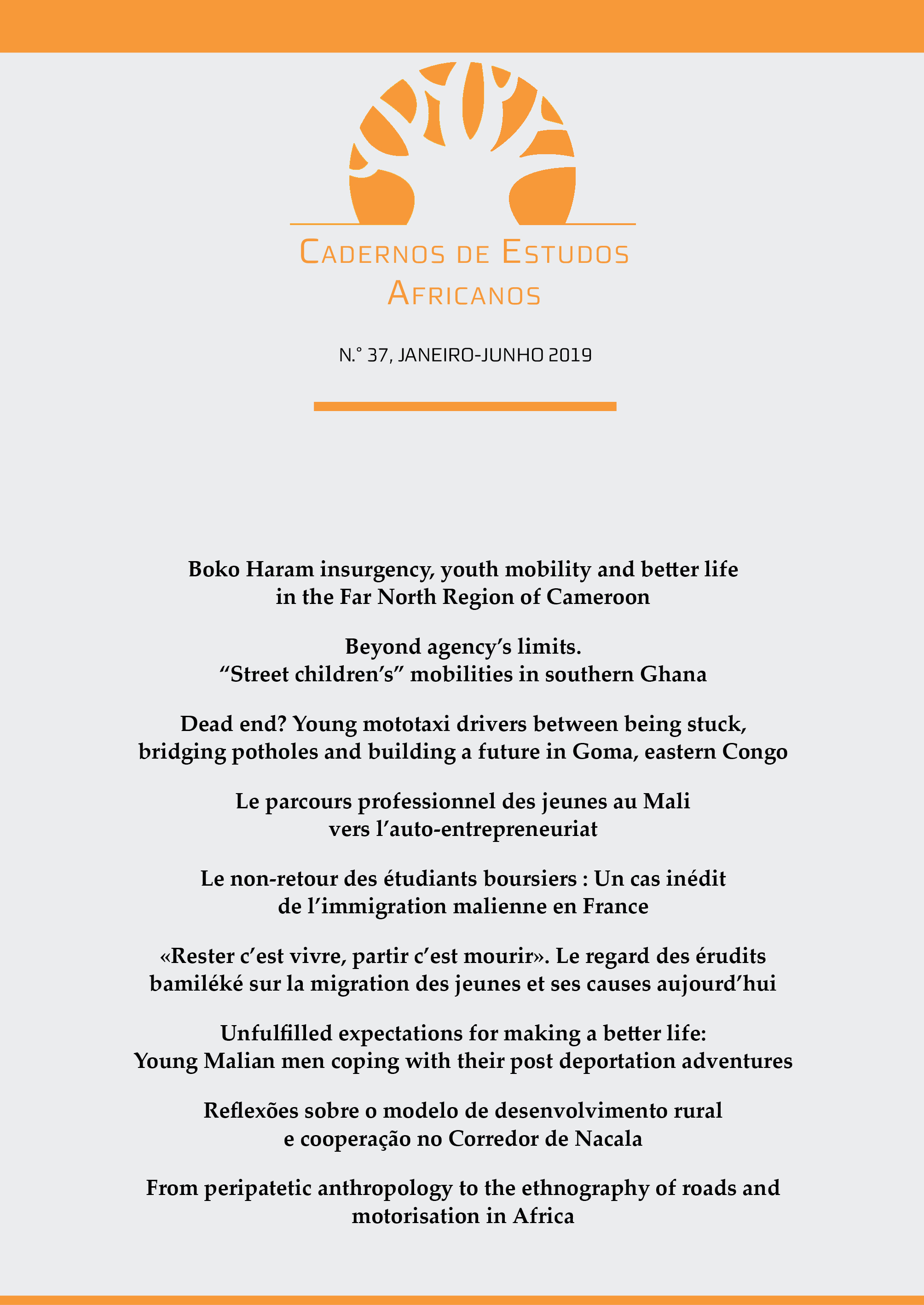Introduction: Young people working for better lives in West and Central Africa
DOI:
https://doi.org/10.4000/cea.3543Abstract
After more than a decade of emphasizing African children’s and youth’s agencies, possibilities and creativities in more or less challenging social, political and economic environments (see Bordonaro & Carvalho, 2010; Christiansen, Utas, & Vigh, 2006; Honwana & de Boeck, 2005; Martin, Ungruhe, & Häberlein, 2016; Spittler & Bourdillon, 2012), other recent studies increasingly highlight the young people’s powerlessness, bleak presents and uncertain futures. Doing so, the image of an enduring social, political and economic exclusion is manifested in popular conceptualizations of “being stuck” (Sommers, 2012), “persistent marginalization” (Resnick & Thurlow, 2015) and probably most prominently in Alcinda Honwana’s (2012) conceptualization of “waithood” (see Dhillon & Yousef, 2009), all implicitly acknowledging the more than twenty year old observation of Africa’s “lost generation” (Cruise O’Brien, 1996). Seemingly affected by deficiencies of various kinds and hence often forced into all sorts of problematic or dangerous engagements in order to – socially or literally – survive, today’s young generation in African settings is widely portrayed to live lives “out of place” (see Invernizzi, Liebel, Milne, & Budde, 2017) and outside social norms. It is this shift back to conceptualizations of children and youth as social problem that this special dossier aims to scrutinize and to challenge.
Additional Files
Published
Issue
Section
License

This work is licensed under a Creative Commons Attribution-NonCommercial-ShareAlike 4.0 International License.
I authorize the publication of the submitted article/review of which I am the author.
I also declare that this article is original, that it has not been published in any other way, and that I exclusively assign the publication rights to the journal Cadernos de Estudos Africanos. Reproduction of the article, in whole or in part, in other publications or on other media is subject to the prior authorization of the publisher Centro de Estudos Internacionais do Iscte - Instituto Universitário de Lisboa.

